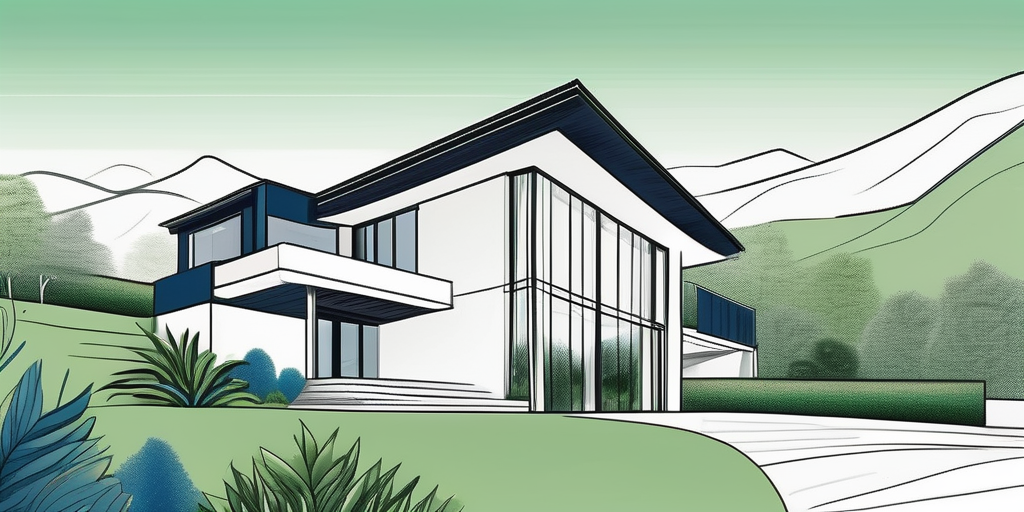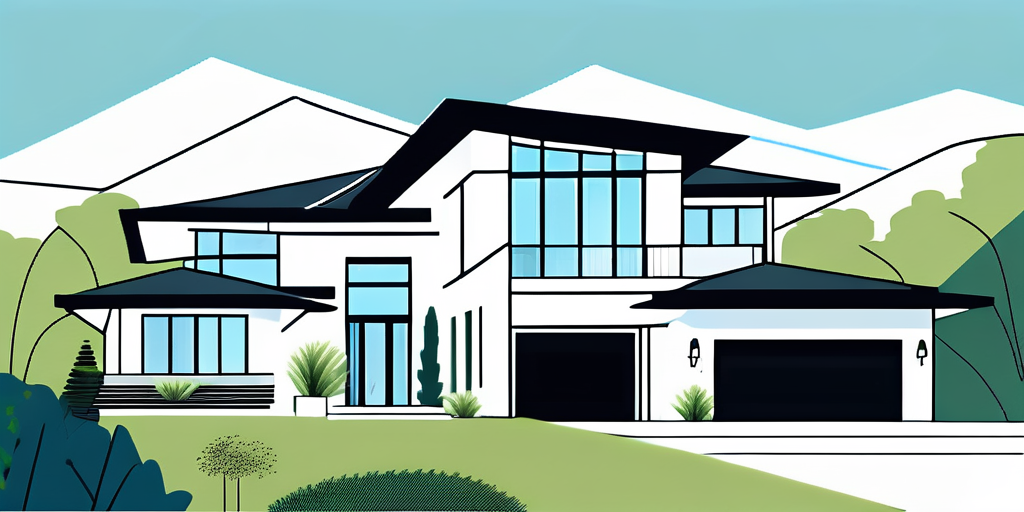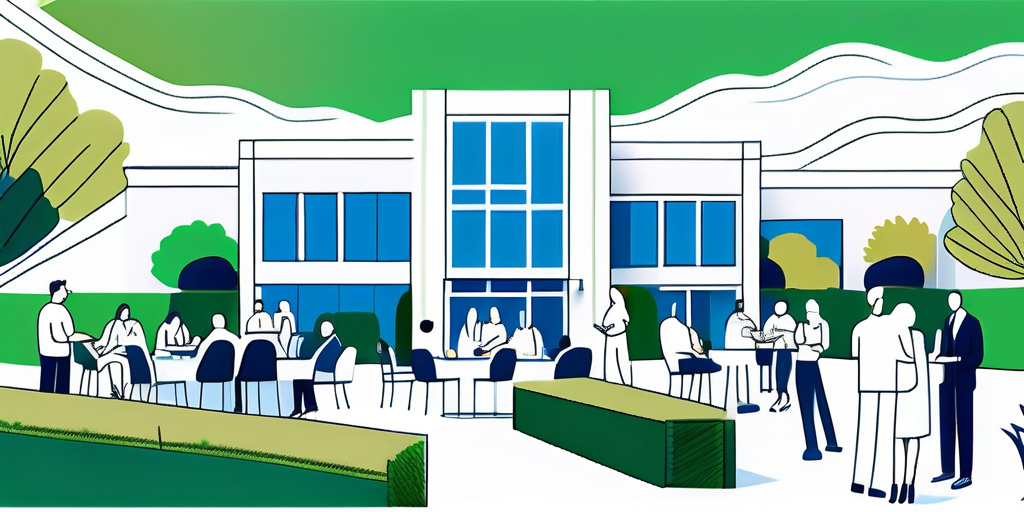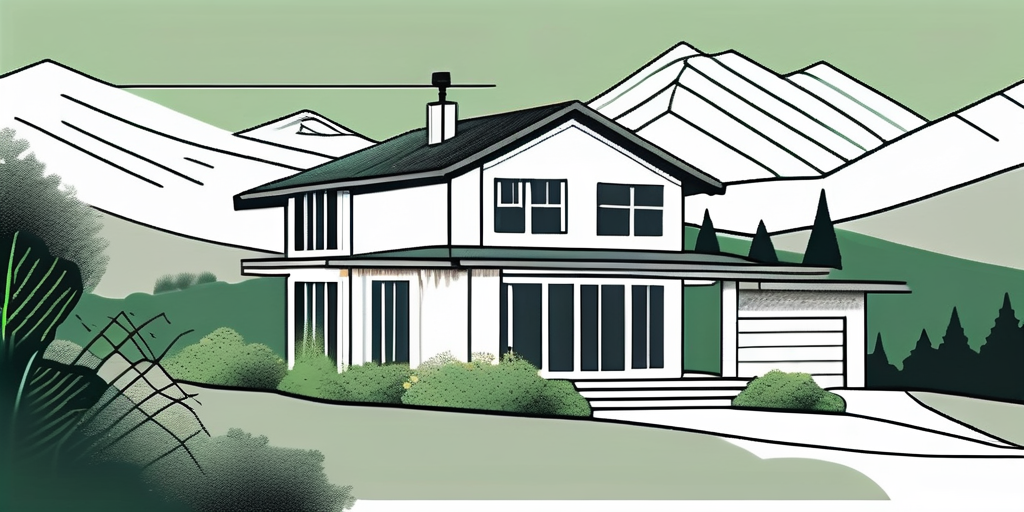
Building a home in a prestigious community can be one of the most rewarding decisions a homeowner can make. Not only does it provide a sense of security and belonging, but it also significantly influences the future value of your investment. In this article, we'll explore the intricacies of prestigious communities and the manifold advantages they offer, as well as some important considerations to bear in mind.
Prestigious communities are often characterized by their well-maintained landscapes, upscale amenities, and a strong sense of security and exclusivity. These communities attract families and individuals who value a high quality of life and are typically willing to invest in their surroundings. The allure of such neighborhoods often lies in their ability to provide not just a home, but a lifestyle that encompasses leisure, social engagement, and a sense of belonging.
Prestige in real estate can be defined by several factors. Primarily, it includes the reputation of the neighborhood, the quality of the homes, and the amenities available. Prestige is not merely about high prices; it encompasses the aura of exclusivity, community involvement, and cultural significance. This multifaceted definition means that even within the same city, two neighborhoods can have vastly different levels of prestige based on their historical context and the demographics of their residents.
Furthermore, events and historical context play vital roles in how a community is perceived. Neighborhoods with rich histories, active community clubs, and cultural activities usually stand out as more prestigious. For instance, areas that host annual festivals, art fairs, or charity events not only enhance their cultural fabric but also foster a sense of pride among residents. This engagement often translates into a vibrant community spirit, where neighbors become friends and collaborate on initiatives that benefit the entire area.
High-end neighborhoods are often distinguished by their outstanding features, which may include:
These characteristics not only elevate the living experience but also contribute to a robust community bond. Residents who value these attributes often find themselves becoming more involved, leading to enriched community dynamics. The presence of well-organized neighborhood associations can further enhance this experience, as they often facilitate social gatherings, community service projects, and local advocacy efforts, ensuring that the interests of all residents are represented and addressed.
Moreover, the architectural styles of homes in prestigious communities can vary widely, from modern designs to classic estates, each reflecting the personal tastes and values of their owners. This diversity not only adds to the aesthetic appeal of the neighborhood but also creates a rich tapestry of stories and experiences. Homeowners often take pride in their properties, investing in landscaping and renovations that not only enhance their own living spaces but also contribute to the overall charm and desirability of the community. As a result, these neighborhoods often maintain high property values, making them attractive not just for current residents, but also for potential buyers looking for a prestigious address.
Investing in a prestigious community can provide extensive financial benefits. While the initial costs may be higher than in less desirable areas, the long-term returns often justify the expense. Let’s delve deeper into the financial upsides of such an investment.

Property values in prestigious communities tend to appreciate at a greater rate compared to other neighborhoods. This is due to the demand for high-quality living space, which consistently outstrips supply.
Moreover, homebuyers in prestigious areas are often willing to pay a premium for properties that offer luxury and exclusivity. This results in a robust market for both resale and rental opportunities, making these neighborhoods a lucrative investment choice. The allure of living in a well-regarded community is not just about the homes themselves; it encompasses the lifestyle, amenities, and social status that come with it. Features such as proximity to top-tier schools, fine dining, and cultural attractions further enhance the desirability of these locations, driving up property values even more.
Prestigious communities often demonstrate considerable market stability, even during economic downturns. Their desirability keeps property values relatively secure, providing homeowners with reassurance about their investment.
Investing in such areas can yield not only financial returns but also provide a cushion against market volatility. As affluent buyers continue to seek homes in prestigious locales, the potential for investment growth remains strong. Furthermore, the presence of well-established homeowners and a community-oriented atmosphere fosters a sense of safety and stability that attracts families and individuals looking for long-term residence. This stability is often reflected in lower vacancy rates and higher rental yields, making these properties not just homes, but also sound financial assets that can contribute to a diversified investment portfolio.
Beyond the financial aspects, living in a prestigious community offers substantial social benefits. The environment fosters opportunities for residents to connect and engage with like-minded individuals.

In prestigious communities, residents often share similar values and financial backgrounds, creating an environment conducive to networking. Social events, charity functions, and community gatherings provide platforms for residents to forge valuable relationships.
These networking opportunities can be beneficial for personal and professional growth, offering chances to collaborate, share resources, or even find mentors among neighbors. Many residents find that the connections made in these settings lead to business partnerships, job opportunities, and even lifelong friendships, as the shared experiences and aspirations help to solidify bonds that extend beyond mere acquaintance.
The quality of life in prestigious communities is often enhanced by superior community services. This includes well-maintained public spaces, efficient waste management, and advanced security measures.
Additionally, many upscale neighborhoods offer amenities such as fitness centers, golf courses, and exclusive clubs, contributing to a vibrant and enjoyable lifestyle. Residents are often involved in various community initiatives that further enrich their living experience. For instance, many prestigious communities host workshops, art exhibitions, and cultural events that not only entertain but also educate residents, allowing them to engage with the arts and local culture in a meaningful way. Such activities not only foster a sense of belonging but also encourage residents to take pride in their community, creating a shared identity that enhances overall social cohesion.
The design and construction of homes in prestigious communities often reflect the high standards expected by their residents. This can greatly influence the planning and architectural choices a builder must consider when constructing a new home.
Architectural standards in such communities are typically stringent, demanding creativity and innovation from builders. Homes are often designed to align with the overall architectural theme of the neighborhood, which can include a variety of styles, from modern to classic.
Homeowners may find themselves inspired to invest in unique designs that incorporate high-quality finishes, sustainable practices, and the latest technologies. This emphasis on exceptional design elevates the overall atmosphere of the community.
Furthermore, the integration of smart home technologies has become a hallmark of modern luxury living. Builders are increasingly incorporating features such as automated lighting, advanced security systems, and energy-efficient appliances that not only enhance comfort but also contribute to a more sustainable lifestyle. These innovations not only meet the demands of discerning homeowners but also set a benchmark for future developments in the area, ensuring that the community remains at the forefront of architectural excellence.
Building in a prestigious community often provides access to premium building materials and services that may not be available elsewhere. Residents can choose from high-quality finishes, advanced home systems, and tailored landscaping options.
Moreover, established relationships between builders and suppliers in upscale markets can lead to a more streamlined construction process, ensuring homes are built to last and retain their value over time.
This access to premium materials extends beyond the basics of construction; it includes luxurious elements such as custom cabinetry, imported stone countertops, and eco-friendly insulation options. Additionally, the availability of skilled artisans and specialized contractors allows for personalized touches that can transform a house into a truly unique home. As a result, homeowners can create spaces that reflect their personal tastes while also adhering to the community's aesthetic standards, ultimately enhancing the property’s marketability and appeal.
While the advantages of building in a prestigious community are plentiful, there are also certain drawbacks and considerations that potential homeowners should keep in mind. It's essential to weigh these factors carefully before making any decisions.

The most apparent drawback is the significant initial investment required to build in a prestigious area. Costs for land acquisition, construction, and ongoing homeowner association fees can be substantial, which may not be feasible for all buyers.
Additionally, high-quality materials and skilled labor, which are crucial for meeting the expected standards, can inflate budgets beyond initial projections. Understanding these financial obligations early on can help in making informed decisions. Furthermore, potential homeowners should also consider the long-term financial implications, such as property taxes, which can be considerably higher in affluent neighborhoods. This ongoing expense can add to the overall cost of ownership and should be factored into any financial planning.
Living in a prestigious community may come with the pressure of maintaining one's property to meet the high standards set by the neighborhood. Homeowners may feel compelled to keep their homes in pristine condition, invest in luxury landscaping, and upgrade to the latest home technologies.
This pressure can be stressful and potentially lead to financial strain for some families. Therefore, it is crucial to strike a balance between maintaining the appearance of a prestige home and managing personal budgetary constraints. Additionally, the social dynamics within these communities can also play a role in this pressure. Homeowners may find themselves competing with neighbors in terms of home aesthetics and renovations, which can lead to an ongoing cycle of investment that may not always yield a return. This competitive atmosphere can detract from the enjoyment of homeownership and create an environment where personal satisfaction is overshadowed by the desire to keep up with appearances.
In conclusion, building a home in a prestigious community offers numerous benefits, from financial gains to enhanced lifestyle and social opportunities. However, potential homeowners should consider both the advantages and the challenges involved in such investments. By thoroughly researching and understanding the implications, one can make a well-informed decision that leads to lasting satisfaction in a prestigious community.